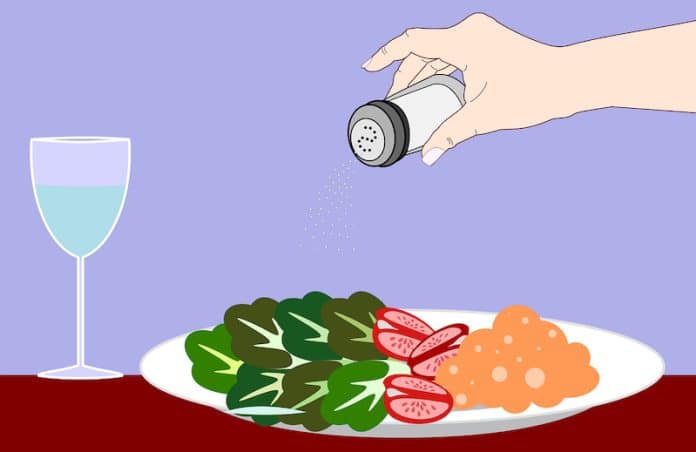
Scientists from Tulane University found that people who add extra salt to their food at the table have a higher risk of early death.
Your body needs a small amount of sodium to function properly. Sodium helps you retain water. In moderation, that’s a good thing, because it helps keep your blood pressure up and in a healthy range.
But too much sodium is bad for your health. Excess sodium can increase your blood pressure and your risk for heart disease and stroke. Together, heart disease and stroke kill more Americans each year than any other cause.
Premature death is death that occurs before the average age of death in a certain population. In the United States, the average age of death is about 75 years.
Smoking cigarettes and being exposed to secondhand tobacco smoke are leading causes of premature death in the United States.
They can increase the risk of cancer, heart disease, stroke, lung disease, and many other health problems. Other causes of premature death are injuries and suicide.
In the study, researchers examined whether the frequency of adding salt to foods was linked to a higher risk of premature death and a decrease in life expectancy.
They tested more than 500,000 participants from UK biobank who completed the questionnaire on the frequency of adding salt to foods.
The information on the frequency of adding salt to foods (do not include salt used in cooking) was collected through a touch-screen questionnaire.
During 9 years of follow-up, 18,474 people with premature deaths. The team found strong links between higher frequency of adding salt to foods and higher levels of sodium in the body.
The researchers found that eating fruits and vegetables strongly changed the associations between the frequency of adding salt to foods and premature death.
In people with low intakes of fruits and vegetables, the link between salt and early death was stronger than people with high intakes of fruits and vegetables.
The team found compared to those who never or rarely added salt, those who always added salt to their food had a 28% increased risk of dying prematurely.
This was related to 2 years lower life expectancy at the age of 50 years in men and women.
Based on these findings, the tea concluded that frequently adding salt to foods at the table is associated with a higher risk of premature death and lower life expectancy.
The research is published in the European Heart Journal and was conducted by Professor Lu Qi et al.
Copyright © 2022 Scientific Diet. All rights reserved.





